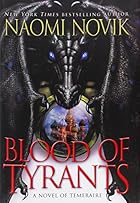My reading pace has slowed down with the fall, but I'm finally past the century mark!
100) Avatar: The Last Airbender: The Search, Part 3, by Gene Luen Yang, Michael Dante, Bryan Konietzko, Dave Marshall (Editor).
The biggest mystery left open at the end of the original Avatar: the Last Airbender series was the fate of Zuko's mother. It was SUCH a mystery, and speculated about SO much by fans of the show, that its ultimate resolution in this graphic novel series was all but doomed to disappointment. And...I was a little disappointed. I'm glad her story wasn't as dark as it could be, but the resolution felt almost too easy--except for the part where there was no sign of resolution for Azula's character. But maybe there will be another series that redeems her, or at least reveals her eventual fate.
Non-Avatar viewers, I'm sorry for all the random babble, but this is the kind of story you'd only be into if you know the series backwards and forwards.
Incidentally, when I went to Amazon for the link, I saw that the book has an average rating of 2 stars. At first I thought, "Wow, people must've been SERIOUSLY disappointed with the ending," but it turned out lots of people who preordered the Kindle version got an entirely different book delivered. Which...that's extremely annoying, but is the star system really the right way to deliver that message? It seems to me the rating is about the quality of the product, and that it's not fair to the creators to have their rating dragged down because Amazon bollixed its delivery. That said, as an author I'm not without bias in how I evaluate rating systems, their purpose, and their effects.
101) Blood of Tyrants, by Naomi Novik.
Eighth in what apparently will be a nine-book series. I raced through it breathlessly in two days. It's always good to see Temeraire again, and I was fascinated to see how Novik kept the general outline of Napoleon's Russian campaign while working in both sides' dragon armies. It was also cool to finally meet American dragons, though I did question her world-building a bit. We've seen all along that dragons in the non-European world are better treated than the Aerial Corps of the European powers (at least before Temeraire and Lien came along), and I can sort of buy that even by the early 19th century the British wouldn't have a clear understanding of how the draconic and human communities coexisted in, say, Africa or East Asia. But since it's clear America's colonial history played out at least somewhat similar to that of the real world (albeit clearly with Native Americans maintaining more power and autonomy because of their alliance with American dragons), I can't see why Britain and France couldn't have learned to treat dragons better from their experiences here.
But that's nitpicking, and I do love this series. I'm only annoyed at Novik for ending on such a cliffhanger! I hope Book 9 won't be too long in coming.
Incidentally, isn't that a beautiful cover?
102) French Napoleonic Infantry Tactics 1792-1815, by Paddy Griffith.
I realized early on upon starting to draft my current work-in-progress, which is set during the French invasion of Russia in 1812, that due to my relative lack of knowledge about the French army compared to the British army of the same era, I'm floundering for humanizing details of my French military characters' lives. So I've set my manuscript aside for the time being and am giving myself a crash course on all things French and Napoleonic. This particular book is as basic a survey as you could find, but it busts some of the myths about the French army (they did not inevitably attack in column rather than line!), and gives me a sense of what my French hero would've experienced serving during the heights of the Grande Armee's glory 1805-07 and how much it had gone downhill by 1812.

No comments:
Post a Comment